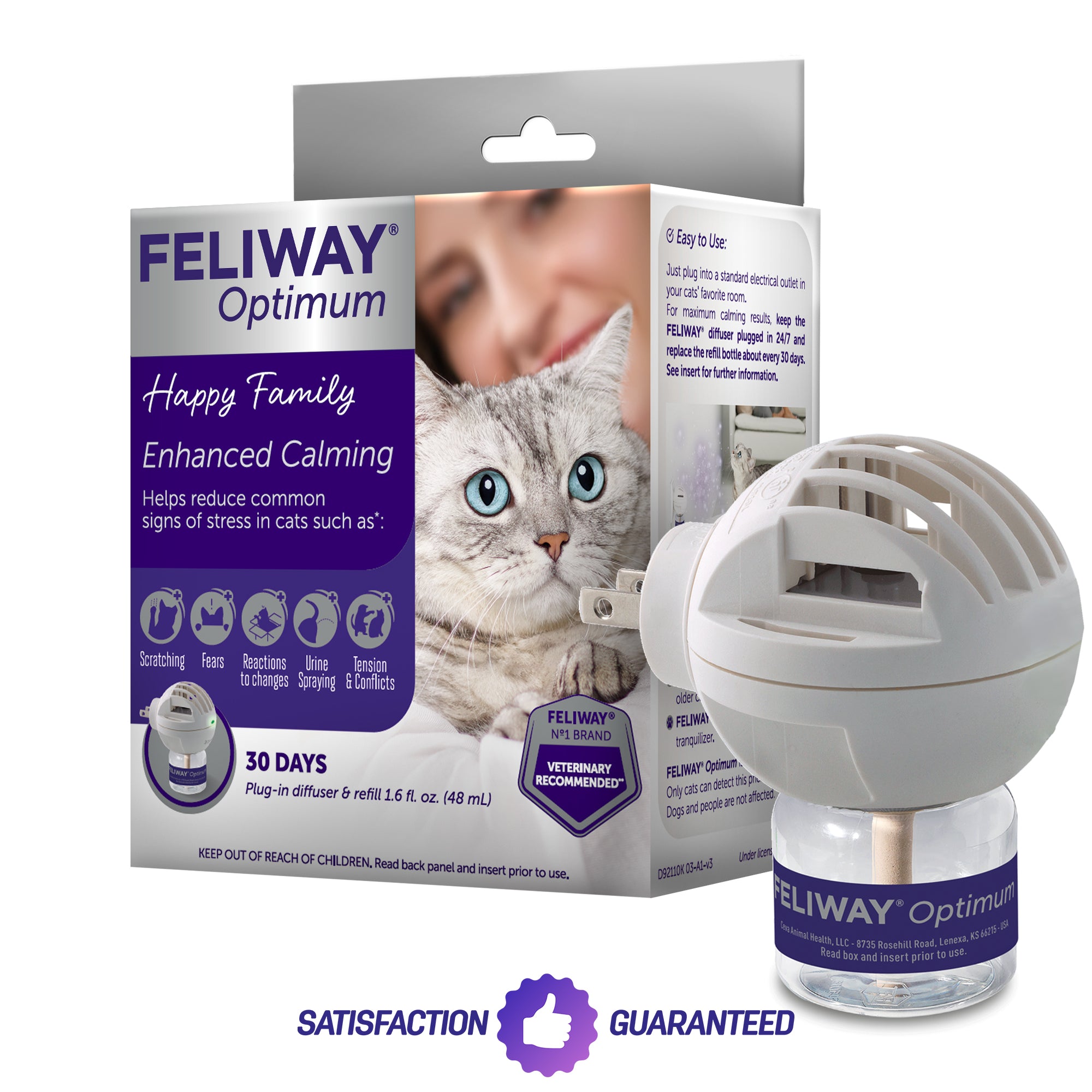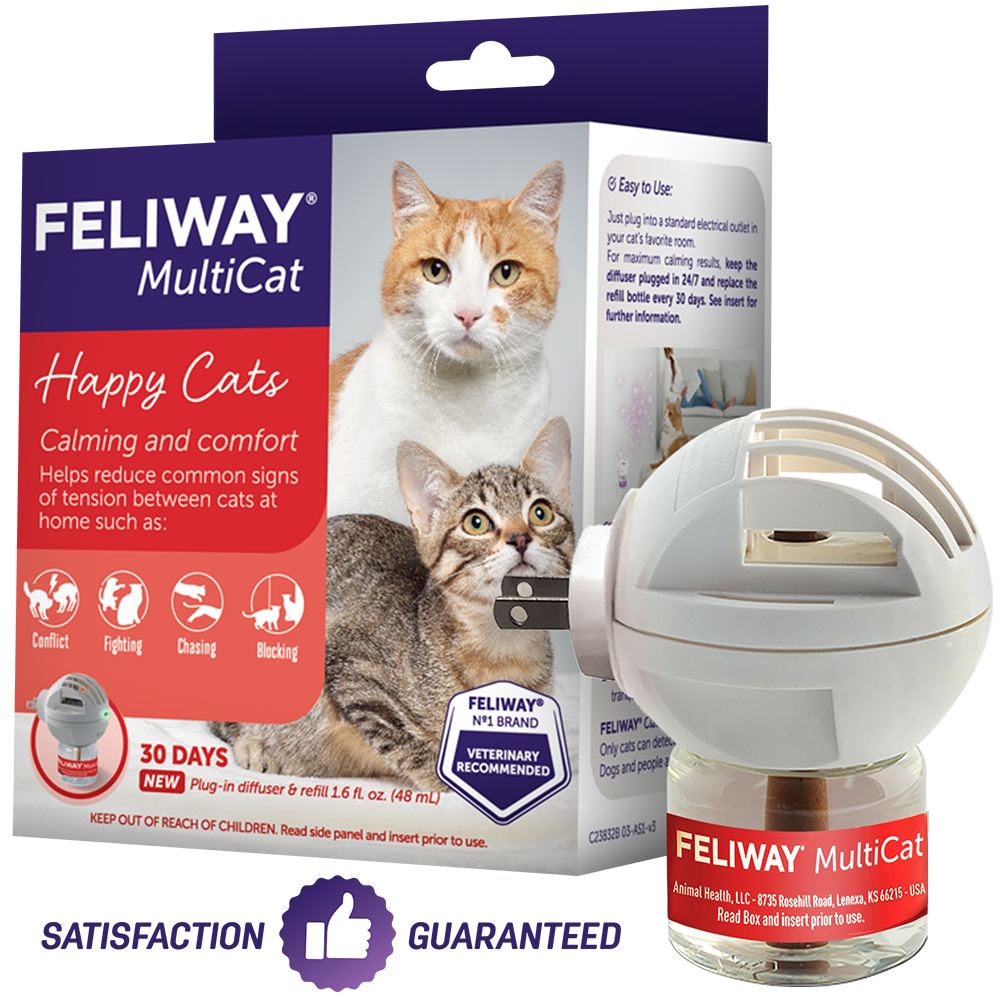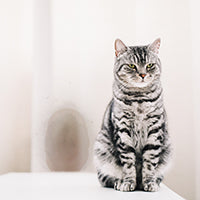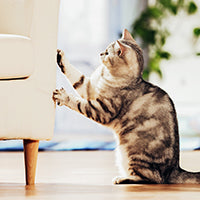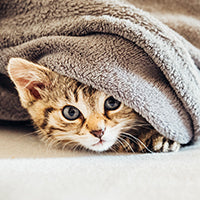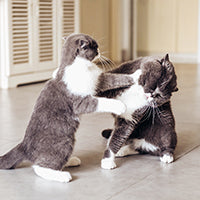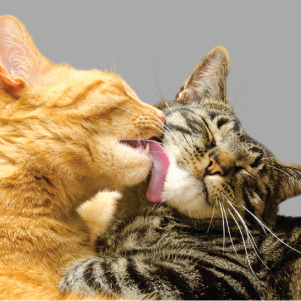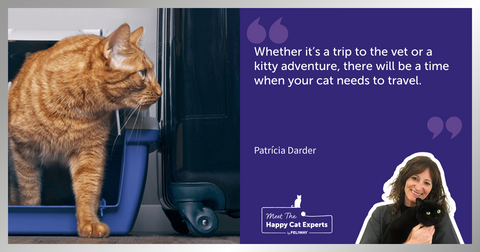
7 Popular Myths About Cats – Are They True Or False?
Across the world there are many popular cat myths that people believe in. Do cats have nine lives? Can they see in the dark? These cat superstitions and myths have circulated around the world for centuries and we’re here to tell you which are true, which are false and some history on where they come from.
Black Cats Are Bad Luck
One very popular myth about cats is that black cats are unlucky. It is believed that this superstition comes from the fact that black cats were often found with witches during the medieval times. However, not everyone believes that black cats bring bad luck… in fact, some argue they bring good luck. Around the world, each country seems to have their own superstition about black cats!
- Japan: They believe that it’s good luck if a cat crosses your path. For women this means a good ‘suitor’ is in their future.
- Germany: Here it depends on the direction – left to right is said to mean good times ahead and right to left means bad.
- Italy: They believe that a black cat jumping on a sick person’s bed means they are to pass away soon.
- China: They believe that black cats are unlucky and bringers of poverty.
- Scotland: However, the Scots believe that if a black cat arrives on your doorstep, you’ll come into money soon.
As this popular cat myth is worldwide and every country has its own take, it has had a negative impact on black cats in shelters. They have become much harder to rehome because of this superstition. While, we know they are just as able to provide companionship as any other colored cat, it seems opinions differ depending on where you are in the world.

Cats Hate Water
It is a very well-known fact that most cats hate getting their whole body wet. It is thought to be due to the time it takes for their coat to dry after getting wet. A result of this is that cats become very cold. Another hindrance of a wet coat is that cats become less agile while it dries, which is a potential danger for them.
Cats originated from areas which had very little rainfall and because of this, they adapted to life without it. However, this has never stopped cats’ curiosity with running water. It’s a very common sight to see cats pawing at dripping taps for fun.
It must be said that this cat myth isn’t true for all breeds, however. Some breeds are very at home in water, as they originated in areas where this was more common. You may recognize the Bengal or Turkish Van breed and may have even seen them having all sorts of fun in the water.
One common misconception is that spraying cats with water works as a punishment for unwanted behavior. This can be extremely unpleasant for cats! It would be better to offer positive reinforcement for the behaviors you prefer.

Antisocial & Independent Cats
Some people believe the myth that cats are antisocial creatures and too independent. Often cats will be compared to dogs in this way, but the fact is dogs were bred for pack life and cats are the opposite!
The cats that live with us today actually retain the same needs as their close relatives who are still found in the African Savannah today – the African Wildcat. This breed are independent creatures who live and hunt completely alone.
The cats we know today have evolved to be lots more social than their ancestor. They are flexible in their social abilities and are capable of living in groups such as families. Cats can also develop strong bonds with the humans they live with. They have come a long way from the African Wildcat.
If you are a cat parent yourself, you will know that cats are now capable of living with other cats and even dogs, too. We recommend when introducing new cats to each other to do this gradually and make sure there are enough resources for each cat to access on their own terms. FELIWAY Optimum can help cats where there are signs of conflict and tension.
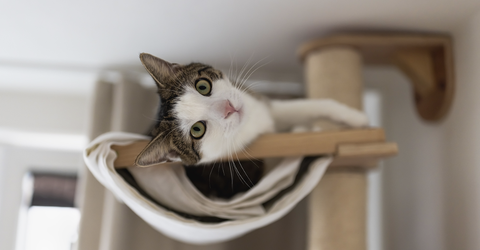
Cats Landing On Their Feet
As a species, cats have always enjoyed being in elevated places. They are used to living alone and being higher up in order to see everything around them. This makes sense as they have developed a righting ability if they fall! They can twist very quickly in the air as they fall, forming a ‘parachute’ and right themselves before they land on their feet.
That being said, it doesn’t mean that they won’t injure themselves when they land. Some cats fall from great heights such as from windows of apartments or from the first floor of a house, and will injure themselves even if they do land on their feet!
Cats Have Nine Lives
The myth that cats have nine lives comes from their very full history. Dating back to Shakespearean times, in Romeo & Juliet he mentions the nine lives of cats. There is also an old English proverb: “A cat has nine lives. For three he plays, for three he strays and for the last three he stays”. This could be linked to the common perception that they can get themselves out of trouble easily as they are extremely agile.
It is a lovely thought that our beloved pets have nine lives and will constantly avoid injuries. However, it is very important to keep up to date with their regular health checks. These checks should be at the very least yearly, depending on your cat’s age.
Cats Can See In The Dark
At some point or another, you have probably thought “can cats see in the dark?”. It’s a very common myth about cats which stems from their origins. Cats are more active when their natural prey is active – between dusk and dawn. This means cats are technically crepuscular! A result of this is that they have adapted to seeing in low light conditions, making hunting that much easier.
Cats can retain this natural drive even though they have adapted to life as a pet. We can give our cats an outlet for their natural prey drive by making sure we play with them every day.
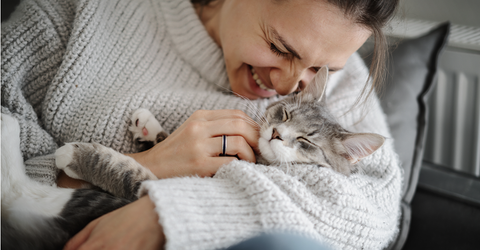
Cats Can’t Be Trained
Some people think that cats can’t be trained and this is simply untrue. Teaching your cat to do things can be a great way to strengthen your bond together. It can also help your cat to cope with inevitable things that will happen in life, like brushing their teeth, getting groomed or traveling in a cat carrier. All these things are much easier if your cat is trained.
We always recommend positive reinforcement when training. Find out which treat works best for your cat and start your training that way. Another great addition to training could be FELIWAY Optimum an excellent option for keeping your cat happier within the house. You know what they say… a happy cat is an easier to train cat!
Are you interested in learning more about cat myths? We love hearing from you so please don’t hesitate to get in touch! You can also stay informed with our latest information as well as further fun facts, by signing up to our newsletter.
